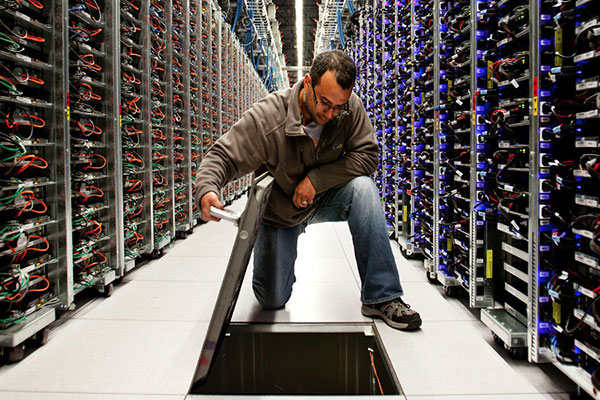A survey of technology experts by the Pew Research Center and Elon University predicts that the Internet of Things will take off in the next decade despite serious concerns about the security of IoT devices and the data they hold. The IoT will gain wide adoption in the next decade, with the result that many aspects of day-to-day life will be transformed by a combination of inexpensive sensors, cloud based computing and data analytics. The report cites a number of likely innovations that will become commonplace by 2025 – from “smart” food products that can report when they are exhausted or spoiled, to smart roads and infrastructure to “subcutaneous sensors or chips that provide patients’ real-time vital signs to self-trackers and medical providers.” The Pew Center canvassed more than 1600 technology leaders and analysts about the Internet of Things and published the findings of the survey on Wednesday. The survey population included […]
home gateway
Dan Geer Keynote: Security of Things Forum
The following is a transcript of a speech given by Dr. Dan Geer at the Security of Things Forum on May 7, 2014. The Forum was held at The Sheraton Commander in Cambridge, Massachusetts. The official copy of Dr. Geer’s speech lives on his web site, and can be found here. .Security of Things .Dan Geer, 7 May 14, Cambridge Thank you for your invitation and to the other speakers for their viewpoints and for the shared experience. With respect to this elephant, each of us is one of those twelve blind men. We are at the knee of the curve for deployment of a different model of computation. We’ve had two decades where, in round numbers, laboratories gave us twice the computing for constant dollars every 18 months, twice the disk drive storage capacity for constant dollars every 12 months, and twice the network speed for constant dollars every […]
Blade Runner Redux: Do Embedded Systems Need A Time To Die?
The plot of the 1982 film Blade Runner (loosely based on the 1968 novel Do Androids Dream of Electric Sheep by Philip K Dick) turns on the question of what makes us ‘human.’ Is it memories? Pain? Our ability to feel empathy? Or is it merely the foreknowledge of our own certain demise? In that movie, a group of rebellious, human-like androids – or “replicants” – return to a ruined Earth to seek out their maker. Their objective: find a way to disable an programmed ‘end of life’ in each of them. In essence: the replicants want to become immortal. It’s a cool idea. And the replicants – pre-loaded with fake memories and histories – pose an interesting philosophical question about what it is that makes us humans. Our artificial intelligence isn’t quite to the ‘replicant’ level yet (the fictional tale takes place in 2019, so we have time). But some […]
Tripping Over Heartbleed’s Long Tail
The news about the dreadful Heartbleed OpenSSL vulnerability keeps pumping – almost a month since it first made headlines. But now that other, equally scary security news is stealing the headlines (like the nasty Internet Explorer vulnerability that was announced this week, Heartbleed is taking a back seat. So where do things stand? I think its safe to say that we’re entering a phase that might be considered Heartbleed’s ‘long tail.’ On the one hand: there’s evidence of good news. The Register reported today that data collected by the firm Qualys suggests that almost all websites that were vulnerable to Heartbleed three weeks ago are now patched and no longer vulnerable. The Register’s John Leyden quotes Ristic, the director of engineering at Qualys, putting the percent of web sites, globally, that are still vulnerable to Heartbleed at 1 percent. That’s great news – but I don’t think its the end of the story […]
Heartbleed: Technology Monoculture’s Second Act
Say ‘technology monoculture’ and most people (who don’t look at you cross-eyed or say ‘God bless you!’) will say “Microsoft” or “Windows” or “Microsoft Windows.” That makes sense. Windows still runs on more than 90% of all desktop systems, long after Redmond’s star is rumored to have dimmed next to that of Apple. Microsoft is the poster child for the dangers and benefits of a monoculture. Hardware makers and application developers have a single platform to write to – consumers have confidence that the software and hardware they buy will “just work” so long as they’re running some version of Windows. The downside, of course, is that the Windows monoculture has also been a boon to bad guys, who can tailor exploits to one operating system or associated application (Office, Internet Explorer) and be confident that 9 of 10 systems their malicious software encounters will at least be running some version of the […]




